#Bulgarian society
Photo
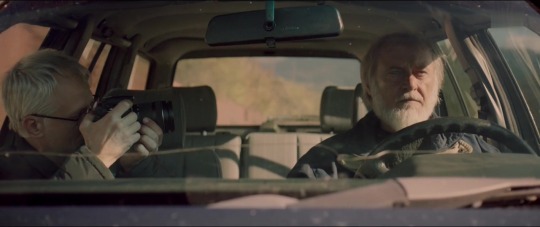
Бащата [The Father] (Kristina Grozeva, Petar Valchanov - 2019)
#Бащата#The Father#Kristina Grozeva#Petar Valchanov#Bulgarian drama film#Ivan Barnev#Ivan Savov#dreams#Eastern Europe cinema#Tanya Shahova#Maria Bakalova#Bulgarian movies#Bulgarian cinema#European movies#Bulgarian society#father and son#psychic#photography#photographs#photographers
2 notes
·
View notes
Text

ꜱʜᴇ’ꜱ ᴛʜᴇ ᴍᴇᴀɴ ɢɪʀʟ
5 notes
·
View notes
Text
BULGARIA - Protection of the Dalmatian pelican in Bulgaria.

The online lecture will present the long-lasting efforts for the protection of the species in Bulgaria, made by one of the leading experts in the area from the BSPB – Svilen Cheshmedzhiev. He will elaborate on the creating of the two new colonies of the species in Nature Park Persina and in Protected Area Kalimok Brashlen as well as the other conservation and research measures such as tagging of pelicans with satellite transmitters.
Country : Bulgaria
Organizer : Bulgarian Society for the Protection of Birds
#world wetlands day#Bulgarian Society for the Protection of Birds#Nature Park Persina#Protected Area Kalimok Brashlen#2 february#bulgaria#online lecture
0 notes
Text
So my sister and I undertook to have a three-month long James Spader movie marathon, where we watched 1-2 spader films each week. It's like imagine white boy summer but there's just the one white boy and it's James Spader.
Some of these were first- watches for me, so I decided to do reviews for all of them and rate them on a scale of 1-5 spades-- that's judging them as James Spader movies, not necessarily as films in and of themselves--and answer, for each film, the most important question: "Is James Spader Naked in the film?"
Of course we didn't hit all the possible films in his IMDB list, but there's always next year.
Something else to take note of, I don't know why anyone interested in a James Spader post wouldn't know this but he's really got a limited number of genres: low budget sci-fi, weird teen movies, and erotica. the erotica part is gonna be discussed a lot here.
The Shadow of Fear (2004)
♤♤♤
Is James Spader Naked?: No
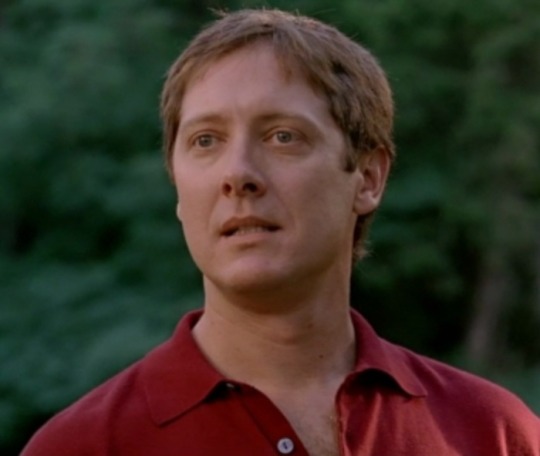
James Spader steps into his customary antagonist role as a blackmail mastermind in this 2004 TV movie starring Matthew Davis and Robin Tunney.
I don't really have much more to say about it, but it's not a terrible way to kill two hours and get a little Spader fix.
Alien Hunter (2003)
♤♤♤
Is James Spader Naked?: Unfortunately, it's set in the antarctic, so no, James Spader is never naked, but oh well.

What an interesting watch this was! James Spader plays a womanizing linguistic's expert specializing in the auditory side of language, who is engaged by an Antarctic expedition to examine a possibly alien object uncovered in the frozen waste.
This an American-Bulgarian production and as low-budget sci-fi goes, it's really quite... well I won't say good, but it's got integrity and I like that. It doesn't go where you think it's going to, and when it was over I wanted to know more and I think that speaks in it's favour.
Secretary (2002)
♤♤♤♤♤
Is James Spader Naked?: It takes until the end of the movie but yes, of course he is.
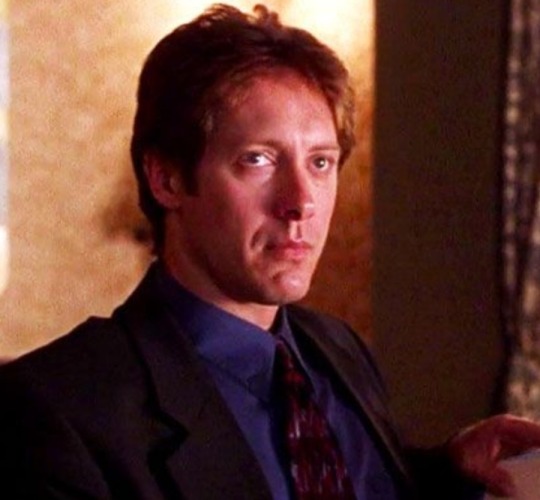
What do I even need to say about this film? This movie is legendary.
Lee, a troubled young woman with an ongoing struggle with self-harm gets out of rehab and endeavors to become a productive member of society by applying for a job as a secretary. Her new employer, E. Edward Grey, attorney at law, is enigmatic, obsessive compulsive and very particular. However, when he discovers Lee's compulsion to self-harm he offers her alternative, safer methods of coping with her unhappy home-life through BDSM.
Though many BDSM practitioners are, understandably, a bit tired of the trope this film perpetuates of BDSM exclusively as therapy for broken people; and the unsolicited instigation of the relationship in the film definitely warrants a "Don't try this at home" warning, it is, in all other respects, generally regarded as the most authentic portrayal of the essence of BDSM in regards to the characters' emotions and relationship to each other. It portrays BDSM as mutual devotion, as it should, and the last five minutes really pack a punch by including a very important aspect of the lifestyle that often goes underrepresented in films with a BDSM focus: aftercare.
According to Maggie Gyllenhaal, during the filming of Secretary she and Spader developed a bdsm-esque ritual in which he would send a PA to fetch her from her dressing room, and bring her to the door of his (which was literally two feet away). She would then knock on his door, he would invite her inside and offer her a chocolate.
And I think that's all I need to say because this rapport comes through on screen, and I'm not certain this movie isn't the closest James Spader has ever come to playing...himself.
Supernova (2000)
♤♤♤♤
Is James Spader Naked?: Yes. Quite.

I'm only being honest when I say that this is a mediocre sci-fi film, but it has a shockingly fun cast and it labored in production hell until it was so altered by the production studio, the director completely orphaned the project and refused to have his name attached to it.
But what we do get is a true James Spader film through and through. He's brunette here, which is ODD, but he's also possibly the most jacked he's ever been (which isn't a lot, but it is noticeable in a very nice way) and what's better is there's a primal sexual undercurrent that saturates the film in a surprisingly satisfying way and culminates in James Spader and Angela Basset climbing naked into a pod and swapping genes very literally.
Crash (1996)
♤♤♤
Is James Spader Naked? Oh, yes.

I couldn't watch this one with anyone--I had to see it alone, and I'm glad I did.
This is perhaps the most infamous entry in James Spader's filmography, but it's fairly on brand for him. There's a lot of sex scenes, in three of which he's nude.
Spader plays James Ballard, a film producer in an open and frankly unmotivated marriage. Both James and his wife Catherine find the need to pursue risky sexual liasons just to have sex with each other. After experiencing a traumatic car crash James launches himself and his wife headfirst into a world they were already dipping their toes into, and they get involved with a cult that fetishizes the violence of car crashes.
That this is a classic James Spader film is not a matter of dispute. It is, however, different from the two other of his most famous movies that deal with sex as a focal point of the story--Sex, Lies, and Videotape and Secretary. In both of these films, sex is catharsis and it is through the characters' exploration of their own sexuality and sense of intimacy that they come out on the other side of the tunnels they find themselves in.
Not so in Crash. Here, sex is a byproduct of an obsession with far more dangerous and destructive impulses. These characters don't come out on the other side of a tunnel, they fall straight down a mine shaft and never come back.
As a Cronenberg film this is great (granted this is the first Cronenberg film I've ever watched, but). It's well executed and it knows what it is and what it wants to convey.
For my own satisfaction as a James Spader movie, though, I find it to be middling. The nudity is great, but, since James Spader plays, essentially, the narrator, he's kind of playing second fiddle for much of the film. He's not much of a focal point in my opinion and it loses me a bit in the middle for that very reason. Now, the fact that Sex, Lies and Videotape and Secretary are two of my top three James Spader films may be telling when I say that Crash really just isn't my speed. I absolutely recommend watching it at least once if you think you can hang with it, because it is worth it: it's simply not a story I feel the need to revisit.
Wolf (1994)
♤♤♤
Is James Spader Naked?: No, but there is a very short silk robe.
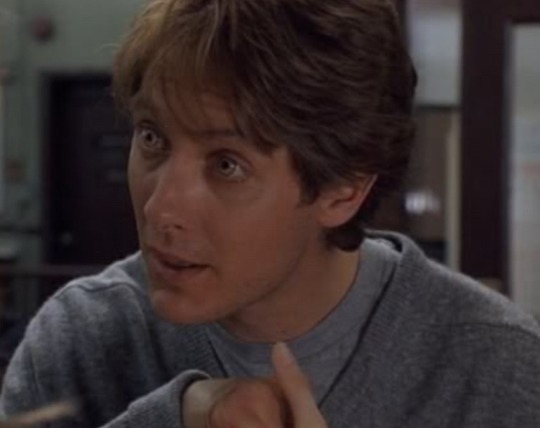
I suppose in the strictest technical terms this is actually a Jack Nicholson movie. Which is a shame because if the main character was played by LITERALLY anyone but Jack Nicholson it would probably be one of my favorite movies of all time.
Alas, we're not here to review Wolf as a Film, but as a James Spader movie. In that context it lands in the middle. His role as the antagonist is really just a side-character. He doesn't really become important until the last half hour of the film, but boy do they pull out the stops.
Once again, he's never nude in the film which is a detractor. He does, however, turn into an aggressively, grossly sexual wolfman and it is deeply uncomfortable but also great to watch. And the yellow contacts are just amazing.
Stargate (1994)
♤♤♤♤
Is James Spader Naked: Solid no, but the lesbian energy more than makes up for it.
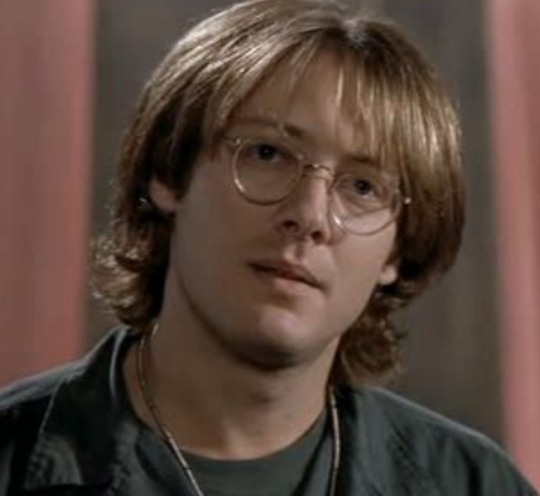
James Spader stars as Dr. Daniel Jackson, a young Egyptologist and linguist whose eccentric theories strain the credulity of the conventional archeological community. They do, however, get him recruited by a military project which focuses on a singular technological find discovered on an archeological dig: the Stargate. Daniel helps to unlock the secrets of the portal which transports him and a group of soldiers to a desert planet with a human population who are enslaved by an alien race who inspired the Egyptian gods. He also picks up a wife along the way.
A classic. I feel like James Spader said "you know what I'm going to take a break from the weird sex stuff... just briefly". Never has he played a more wholesome character, never has his hair been so floppy.
Dream Lover (1993)
♤♤♤♤
Is James Spader Naked?: Very much so. He's VERY naked in this film which is what earns it the fourth spade. Very. Naked. It might be the most naked he's ever been.
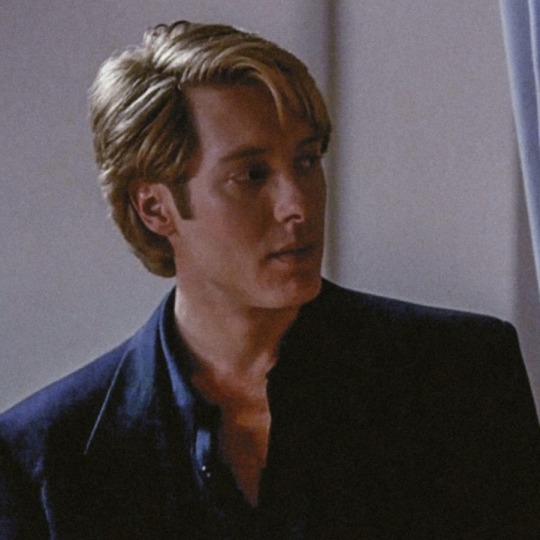
As an erotic thriller, this is a slight disappointment. Really. Never have there been two sexier people in an erotic psychological drama that had zero chemistry with each other than James Spader and Madchen Amick. But oh, my, he's so pretty in this one, and that really does make it worth watching.
As an aside, I have this bee in my bonnet about how if the Twilight Saga films had been made in the 80's, James Spader would have played Jasper. Now this is of course in the 90's, but James Spader's particular shade of Honey blonde hair in this movie only reinforces my feelings on this. His acting in the last five minutes plays out, to me, like an AU where Jasper killed Maria before he left.
True Colors (1991)
♤♤♤♤♤
Is James Spader Naked?: Not quite, but almost!

This is a political drama and a fairly sedate turn in Spader's repertoire. And if it wasn't for Spader I don't know that I could recommend it unless you really wanna spend an hour-forty-two staring at John Cusack's wide-set, beady eyes and disconcertingly small mouth.
But as an entry in James Spader's filmography it is extremely valuable to me. He's not naked (close--there's a bathrobe) but as usual there's something in his character and performance to make up for the lack. In this case, it's his long, hard, incredulous staring and expressions of absolute disgust as his best friend continuously tries to defend his own cataclysmicly stupid (and criminal) decision making. Because it turns out that the only thing sexier than James Spader being a total weirdo creep is James Spader being a righteous man, full of righteous fury. By hell, it's attractive on him. Which makes it even more mystifyingly incomprehensible that Imogen Stubbs' character (what is she even doing here?) has the harebrained audacity to dump him for John Cusack in this film. Hello? You have JAMES SPADER IN YOUR BED, GIRL. HE'S A GOOD, HONEST, UNBEARABLY ATTRACTIVE MAN WITH INTEGRITY AND HE DRINKS. SCOTCH. NEAT! Get your head out of your ass.
As another aside, I mentioned in the previous review that James Spader is Jasper Hale in my head, but while that's true, I think this movie, with Tim Garrity's strong sense of justice and ethics, makes a forceful argument for James Spader as Carlisle. I would have taken either and been happy though.
White Palace (1990)
♤♤
Is James Spader Naked?: before the opening credits are even finished. And then again (fully nude) half an hour in. There's also one scene that shows his thighs to great advantage.
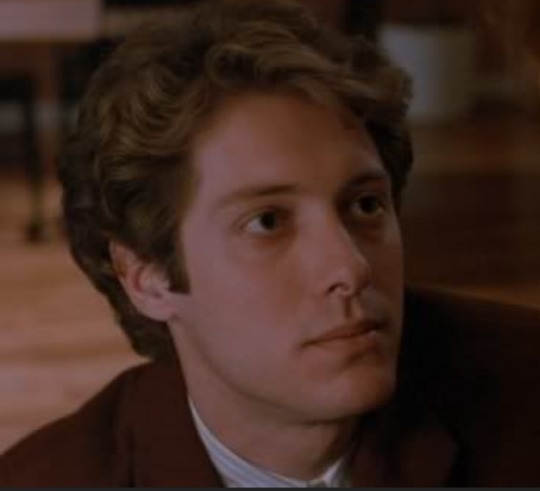
If I could do half Spades I would likely have given this one in addition to the two full Spades it already has.
On the face of it, this has all the trademarks you want from a James Spader film. You've got Spader as a dissolutioned 27 year old widower with intimacy issues (and issues in general) following the death of his beautiful and perfect young wife. The actual sex really gets used up within the first half-hour-- isn't that always the way?
But when I look closer (and this was a first watch for me which is perhaps why I'm digging so deep into it) there are some deviations to the Spader formula and I'm not quite sure they work. He plays a yuppie, and that's par for the course--but he's a Jewish yuppie which, if I'm honest is a little difficult to believe with how invariably WASPish Spader is. In addition to this frankly odd casting, we find Spader having quite a lot of sex. That's not any more out of the norm than him playing yuppies: James Spader is perhaps best known for his easy, unflinching sexuality... which doesn't quite gel when his character is supposed to be repressed and uncomfortable, awakened (and I mean that in a disturbingly literal sense) only by the skillful talents of an older, earthier woman. This is not, in my opinion, where Spader's particular flavor of sex appeal shines. If I'm watching a seduction involving James Spader, I want him to be the one doing the seducing (or at least thinking he is).
Nevertheless James Spader is James Spader, so even if the material isn't helping him, he'll find a way to make the sexy work.
What really fails to sell me on this movie might be that I'm not terribly stoked on Susan Sarandon at the best of times, but this character and story really aren't helping her out either.
Her character, Nora, is a 43 year old waitress at the eponymous White Castle Palace burger joint, and she, like Max is grieving. Except rather than dealing with the loss of a beloved spouse (her husband was a walk-out) she's grieving the loss of her teenage son who boozed and drugged himself into the river at the tender age of fourteen. Their mutual grief is the foundation for their unlikely attraction.
So after max spends a drunk night on her sofa-bed, Nora pounces by administering a blow job... while he's still asleep. After her downright predatory gazing in the bar the previous night, I can't honestly claim surprise (nowadays this would be pretty soundly recognized as rape--but the cusp of the 80's and 90's in film are a different set of standards altogether). Needless to say, In this year of our Lord, 2022 it's an off-putting way to get the ball rolling, even if he goes on to consent to intercourse with her.
Lest anyone be under the impression that I object to age gaps of 16 years in relationships (be they real or fictional) let me preface my next statement by refuting that idea. I generally don't have a problem with age gaps, even quite wide ones. However, perhaps it's that I find Sarandon generally off-putting, or perhaps it's that Nora bonded with fresh-faced Max over the death of her teenage son, but the particular brand of sexual chemistry in this movie leaves a vaguely "mommy" kind of aftertaste for me, and not in a way I find appealing.
Beyond any of that though, the sex itself in this movie didn't really spark anything in me. I believe it shoots for "erotic", but for me it lands a bit far off the mark and hits "tawdry". Not even Dream Lover screwed up that badly.
The story is ostensibly about love-conquering class differences, involving one supremely acted scene in a bathroom at--the swanky Thanksgiving dinner that Max drags Nora to in an effort to show her that he's not ashamed to be seen with her-- in which Nora gets straight up burnt for making assumptions about other people's blowjob skills. Another great aspect of the film is the presence of Eileen Brennan as Nora's fortune-telling older sister.
While the movie ends on the cute note of Max following Nora to NYC, confessing unashamed love for her and laying her down on a table in the crowded restaurant she's waitressing at, it really failed to convince me on the idea of a deeper passion between the leads, and if James Spader can't sell that, then there's a problem.
Bad Influence (1990)
♤♤♤♤♤
Is James Spader Naked?: Read on, but yes.
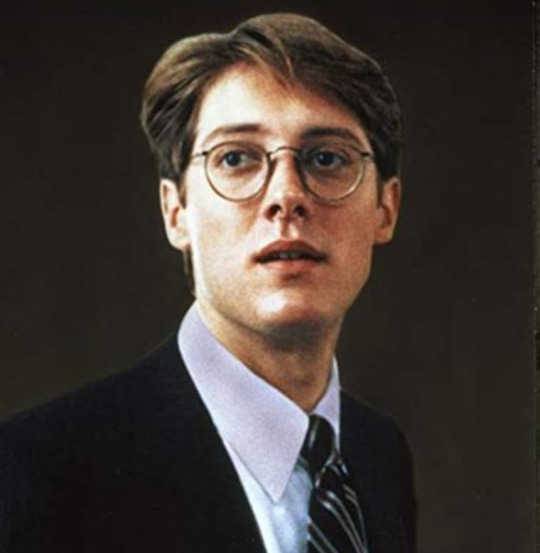
James Spader once again finds himself in his yuppie shoes in this 1990 Psychological thriller, this time as Michael Boll, a young executive who has more in life than he knows what to do with.
Playing opposite Spader (and frankly almost stealing the show) is Rob Lowe in perhaps his greatest performance ever as the psychotic grifter who sets out shake up Michael's life before ruining it-- only to find that the monster he created more than he bargained for.
What a watch! This was a first for me, and it is a trademark James Spader Film for the books. I mean look there's a fully nude sextape, a criminal night out on the town, background performance art, mayhem, murder and a confrontation with a knife: it's a big deal. Honestly, as this summer long movie marathon was supposed to go in reverse-chronological order, we technically should have watched this before White Palace, but I'm so glad we didn't.
The Rachel Papers (1989)
♤♤
Is James Spader Naked?: He is not, but boy howdy Dexter Fletcher is.
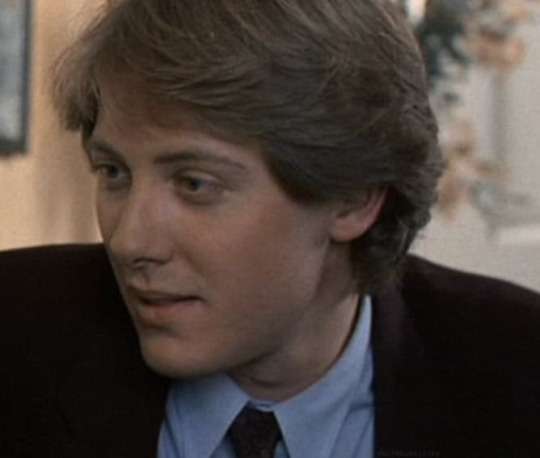
Okay, so this frankly isn't a James Spader film. He didn't really have the billing or the screen time for it to qualify, but it's a great time and he is great in it. He doesn't have much to do, but he makes do with what he's given, and in addition to that you have a young and very cute Dexter Fletcher and amazing side performances from Jonathan Pryce and Jared Harris.
Sex, Lies, and Videotape (1989)
♤♤♤♤♤
Is James Spader Naked?: I mean, given the title and subject of the film, it would be terribly disappointing if he wasn't.

Steven Soderbergh's seminal work finds James Spader truly in his element. Perhaps more so than he ever was before or ever would be again (until Secretary at least).
Not only revolutionary, but unique in the world of Indie film, Sex, Lies, and Videotape deals with people with problems.
Normally I can't be arsed about independent films, but this one truly is different. The comfortable, warm visual tone is offset by an ambient score that would normally seem more at home in, say, Chernobyl, but it all somehow fits together in a cozy, intimate way, despite the awkwardness of the characters and their varying degrees of fucked-up. And one of the truly inspired contributions to that balance is James Spader.
It's impossible to talk about Spader in this film, without discussing the film as a whole-- his comfort in the role is integral to the movie's chemistry.
By all rights, his enigmatic character, Graham, should be creepy (given that he films women discussing their sex lives and sexual fantasies as a workaround to relieve his psychologically-rooted impotency), and yet, he's not--despite his awkwardness, he's incredibly approachable, forthright, and beautifully non-threatening.
It is this approachability, and how Spader conveys it, that is the key to Graham's character as he, his honesty, and his perverse coping mechanism force the principle characters (including himself) to confront the lies they've been telling each other and themselves.
Jack's Back (1988)
♤♤♤♤♤
Is James Spader Naked?: He's shirtless. Frequently.
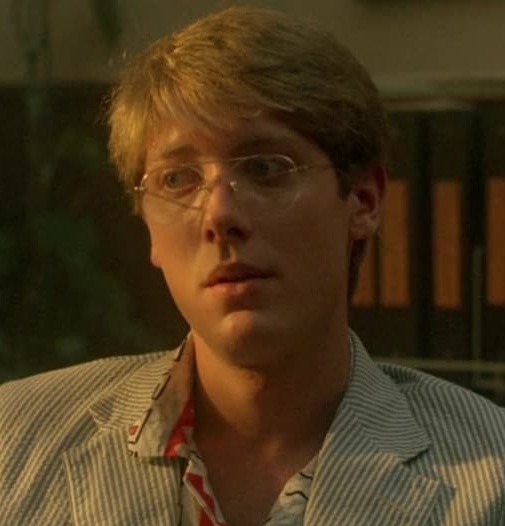
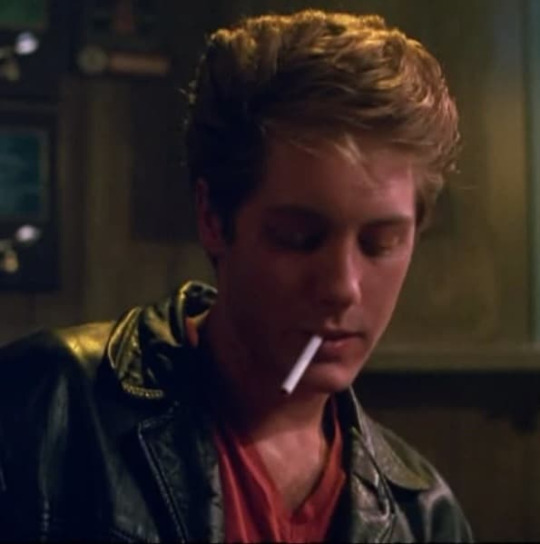
Amidst a rash of Jack the Ripper copycat murders, John Wesford (James Spader), a fiercely principled medical student, stumbles upon one of the crime scenes and is subsequently murdered. Across the neighborhood, John's twin brother, Ricky, awakes from a vivid nightmare of the murder only to see the commotion around the crime scene, visible from his balcony. Ricky must now exonerate himself and his brother's memory from the Ripper Murders.
This movie is frankly better than it has any right to be. It's a far cry from the nuances of Sex, Lies, and Videotape, but pound for pound if you want a hefty dose of James Spader just looking his absolute prettiest, this is the movie for you. And what makes this movie even better is you get two different flavors of Spader. If you're into the principled good man of True Colors, you get that in John, with his busted old VW bug and seersucker jacket. If you're more into the rough, straightforward, but enigmatic side, you get that too, in Ricky.
Ricky, of course is the flavor you get for most of the film. He's got a scar over his eye, his hair is pure art from start to finish, and he's frequently quite naked.
Pretty in Pink (1986)
♤♤♤♤
Is James Spader Naked? I mean not really? It's another robe situation, but it's a good time.

This rating is only for how tertiary his character is, because it's definitely a five-Spade performance. And it's undoubtedly Spader's best known mainstream role (aside from Stargate). Literally nothing about this performance isn't immensely entertaining. There's nothing not to love about how effortlessly Spader sleezes drunkenly through this film. So effortlessly, in fact, that he almost didn't get hired because he was so convincingly scummy that John Hughes mistook it for Spader's own personality and absolutely hated him on first meeting. And his line delivery on "Oh, you are worthless, aren't you?" Incomparable.
That said Pretty in Pink is perhaps the only movie on this list wherein James Spader isn't my primary impetus for watching it. Even the best movies on this list work, primarily, because of what Spader brings to the table, which isn't true for Pretty in Pink, because this movie hinges, let's be honest, on John Cryer.
The New Kids (1985)
♤♤♤♤
Is James Spader Naked?: *hysterical giggling* yeah.
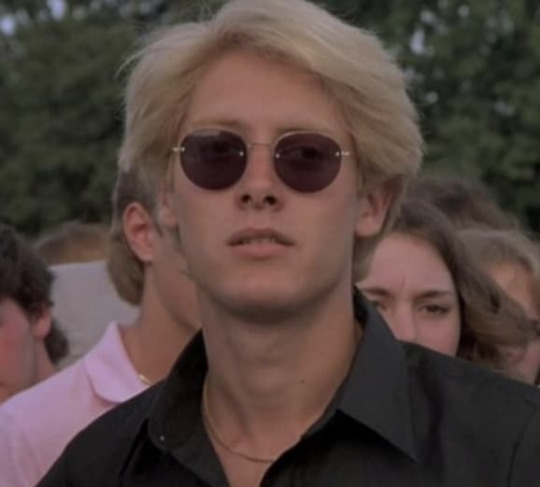
Two military kids move to Southern Florida to live with their uncle at his small local amusement park after the untimely death of their parents. At their new school they quickly find themselves clashing with creep, weirdo and all around snappy dresser Eddie Dutra (Spader) and his gang of hick delinquents.
Lawd what is this movie? No, seriously I don't even know what genre to call this. It's sort of a combination teen drama/thriller with the score of a giallo film plus some work out montages. I'm not really sure who this was made for, because it's definitely a teen thing, but it's rated R.
Ol Jimmy (fun fact he actually prefers to be called that irl) definitely has his Gay Villain pants (and shirts) on here, and very nicely fitted they are too. Dutra may be the most disgusting villain role I've seen Spader play, but by 'eck it's entertaining, and the bleach blond dye job is an interesting look on him to say the least. He also executes a slap and face grab that is just pure artistry.
Tuff Turf (1985)
♤♤♤♤♤

Well, after a fantastic three months of Spader films, we closed out with my personal favorite (Sex, Lies, and Videotape and Secretary notwithstanding), Tuff Turf.
Much in the same vein as the previous entry, this fits into the odd Young Adult genre, with its high school setting but with quite a lot of violence and nudity. It lacks the giallo edge of The New Kids, though, and this time, James Spader plays the protagonist, Morgan Hiller.
Morgan's family relocates from their native Connecticut to Los Angeles after his father loses his business. Morgan, whose malcontent has gotten him thrown out of several prep schools in New England, becomes fascinated by, and immediately begins to pursue Frankie (Kim Richards). The fact that she's dating Nick, a possessive, sociopathic ruffian, seems to make no never mind to him. Determined to show Frankie the kind of relationship she deserves, Morgan, like a terrier, refuses to give up his suit, regardless of the danger.
It's a batshit movie with warehouse bands, country club crashing, go-go dancers, Robert Downey Jr. before he got his teeth fixed, a very nice and tasteful love scene, and also an ax fight. It's about the most fun you can have in under two hours with a lot of very pretty, frequently shirtless James Spader. This is his first leading role ever, and his natural charisma needs no time to get flowing. It is glorious.
Fun fact Tuff Turf and The New Kids released exactly one week apart in January, 1985. Imagine the whiplash of going from Morgan Hiller to Eddie Dutra.
Is James Spader Naked? Yes. He's shirtless. And, actually, so is Robert Downey Jr.
#james spader#sex lies and videotape#tuff turf#the new kids 1985#pretty in pink#jacks back 1988#the rachel papers#bad influence 1990#white palace#true colors#dream lover 1993#stargate 1994#wolf 1994#crash 1996#supernova 2000#secretary 2002#alien hunter 2003#movie marathon
474 notes
·
View notes
Text
Football fan stripped naked by rivals and walked out of the stadium by the police
Location: Bulgaria 🇧🇬 (Plovdiv)
Year: 2013
Genre: Stripped Naked, Walk of Shame
During the football match between two bulgarian teams: Lewsky and CSKA Sofia, two fans of Lewsky was caught spying on the sector of CSKA. Their job was to find out how many of the CSKA fans will be coming back home to Sofia so the Lewsky hooligans would be able to beat them up. After getting exposed as spies (or "rats"), two men were beaten. One of them escaped, and the other one was stripped naked and couldn't leave the enemy sector despity trying, which required him to be rescued by the police and it took quite of time to take him out of site.
The Naked Man (NM)

Name: Georgi Kolchakov
Age: 20
Nationality: Bulgarian (city of Pazardzhik)
The man has been identified because the story has been widely covered in bulgarian football society. It turned out he was a son of a local bulgarian politician.
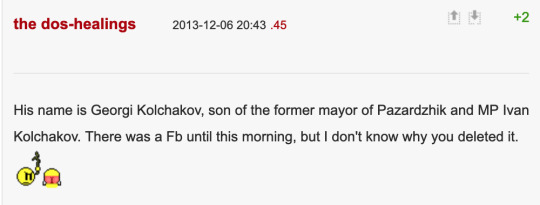
Sadly, there is no link to his social media and based on the advanced search we cannot determine the man's present profile.
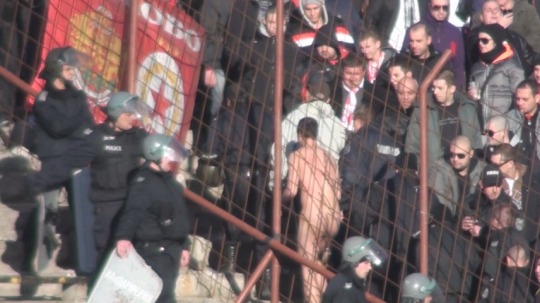
After getting stripped, the naked man has been trapped on the wrong side of the fence and he couldn't climb over the fence to leave the danger zone. After few minutes the police arrived and the man has been escorted out of the stadium. His walk of shame has begun. As he was being walked out with his ass out, the other men were looking at him and his humiliation.
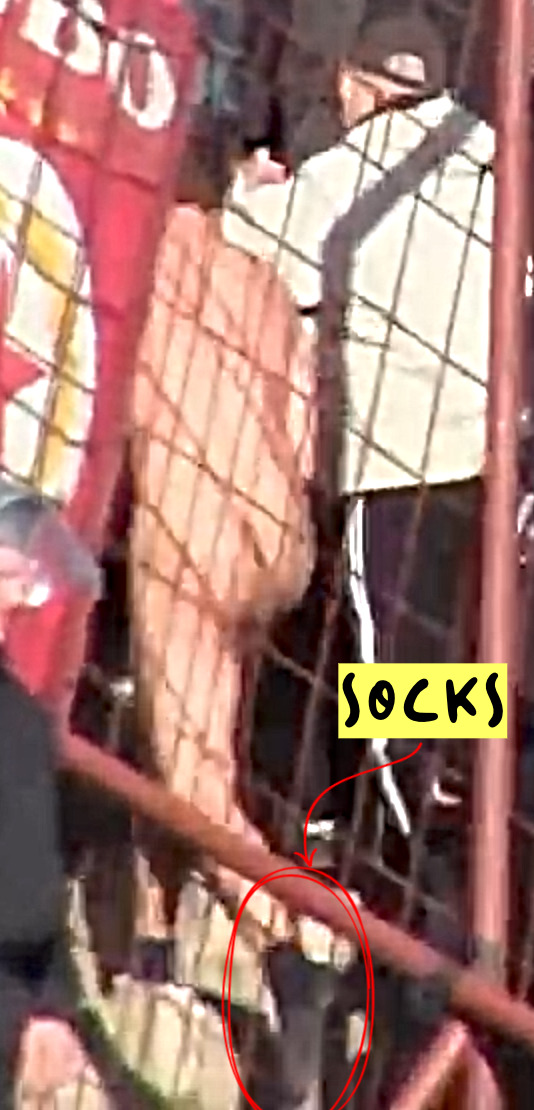
We can notice that the man was wearing only socks. This means not only his clothes were taken away from him but also his shoes. As usual, the man's socks has been left on to make him look even more stupid and to enhance his humiliation.

After reaching the exit of the stadium, it turned out the gate is closed and the police cannot get the naked man out of the site.
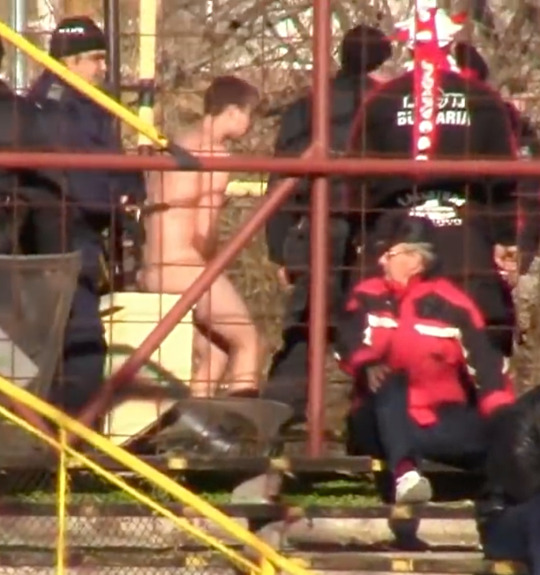
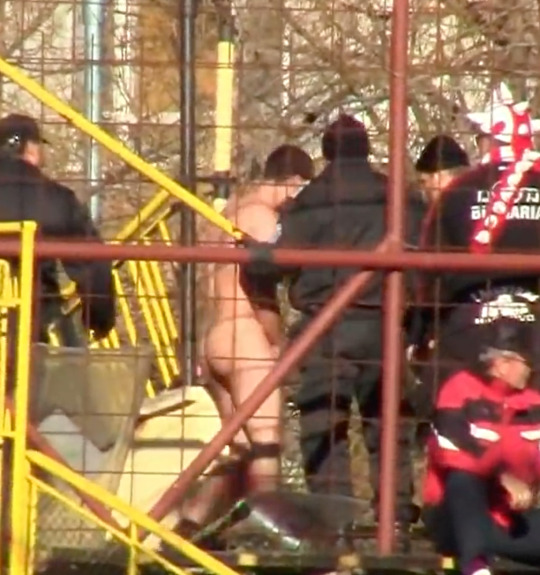
The police officers told him to walk back and sit down with his bare ass and wait until they open the gate. All this time his rivals were observing him and seeing him naked.
The Clothed Men (CM)
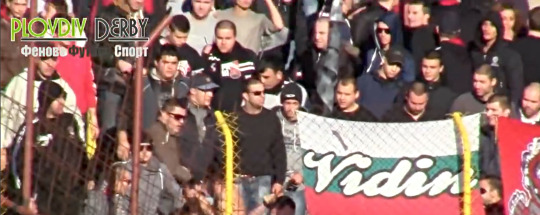
The men with clothes were techinically the whole stadium, including the naked man's rivals, stewarts and police officers. We estimated there could had been thousands of them. The one that stood nearest were probably the ones who had stripped the man naked.
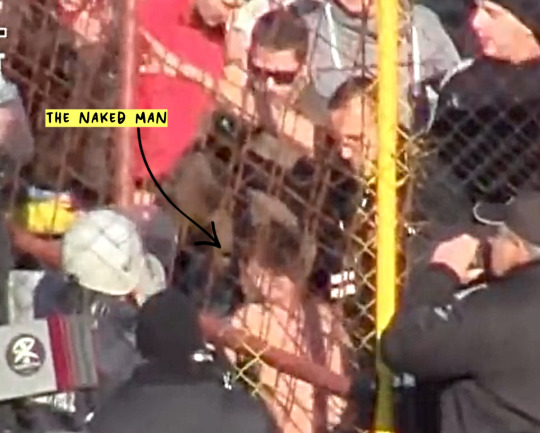

You can notice that some of the men are smiling. Some of them are laughing out loud. And some of them are yelling. The naked man was surrounded by his rival and had to suffer from being mocked and laughed at. One man was spotted telling the naked man to leave the stadium, pointing his arm and finger upstairs, indicating he could had been saying something like "Walk out, get the fuck out of here".
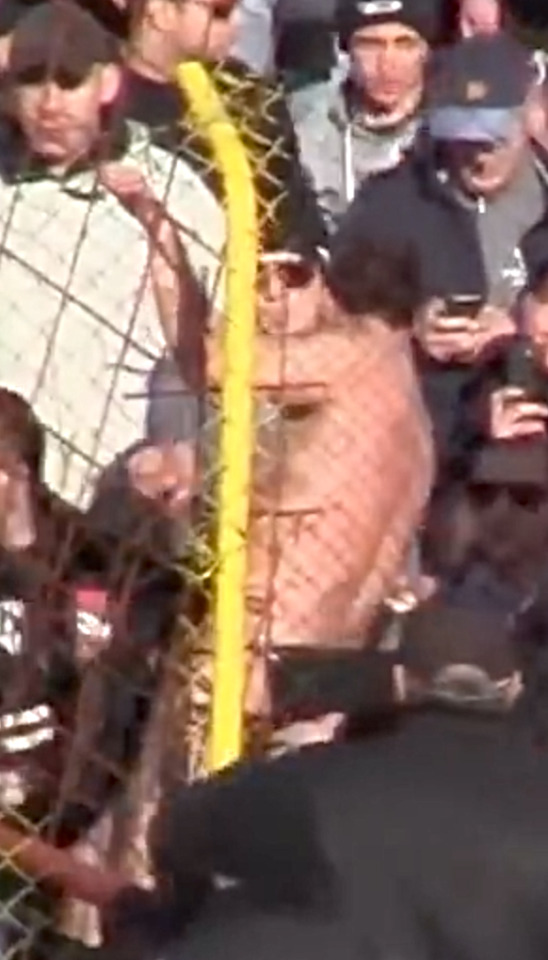
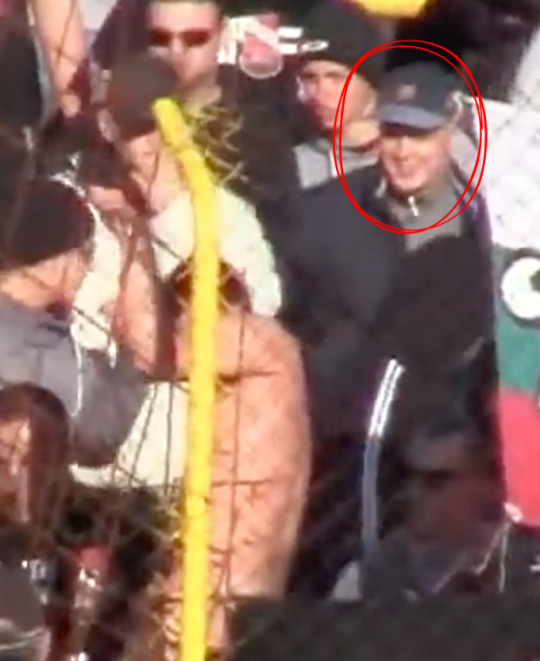
Right after the man was stripped, he was trying to leave the rival's sector by climbing on the fence. Because of being naked and without shoes, he couldn't climb on causing other man to laugh at him. We could spot one guy that clearly is smiling while looking at the naked man.

It is estimated that the man spent about 6-7 minutes naked on the stadium, among hundreds of clothed men that were his rivals. He was walked back and forth by the police in search of the exit. All this time he was covering his dick but his ass was on the display for all that time. And it will remain to be seen on the internet forever.
16 notes
·
View notes
Text
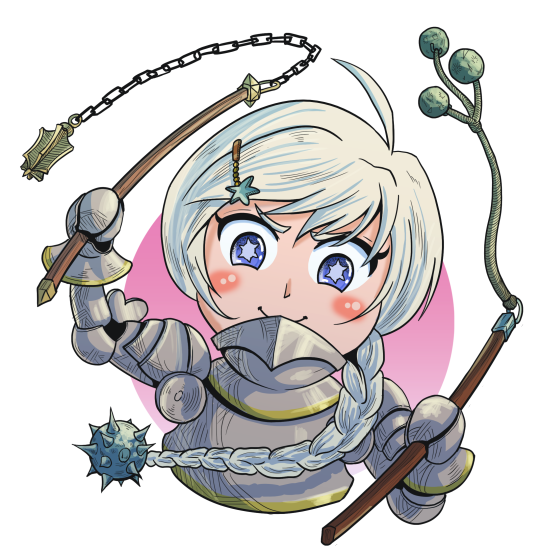
So, besides drawing and writing, I've got a variety of interests (too many, to be precise). Some of them include reenactment, LARPing and other "lived experience" events that often inspire me to be creative.
So, some time ago, the Bulgarian LARPing society got divided on whether flails are safe enough to be allowed in game. As you can imagine, this led to off-game quarrels and internet flame wars. As a fervent pro-flail representative, I drew this propaganda poster featuring "Floli, the Goddess of Flails" to support the flail cause.
Our slogan was "Don't flail the flail"
#art#fantasy#illustration#artists on tumblr#digital art#flail#medieval#larp#armor#chibi#don't fail the flail
27 notes
·
View notes
Text
A post circulating on social media platforms accompanied by a video has stirred controversy, alleging an attack on young boys and a girl in the heart of Sofia. According to the information shared, a group of 11 individuals of Arab origin reportedly assaulted the youths on Vitosha Boulevard in Sofia, hours before International Women's Day on March 8.
While the post has garnered attention online, the Sofia Police have stated that they have not received any reports or signals regarding such an incident.
Deyan Nikolov, a municipal councilor from the right-wing party Revival - "Vazrazhdane," addressed the issue at a briefing, asserting that the children involved were aged between 12 and 14, and the attackers were described as migrants. He indicated that a girl was allegedly attacked and insulted by migrants, prompting three boys to intervene in her defense.
"11 migrants attack and beat kids in the center of Sofia. Unfortunately, no one comes to their aid. We call on the relevant institutions to take action. We want an urgent convening of a session of the Sofia Municipal Council, where all those involved in security in the capital, to take measures, to prepare a strategy to solve the criminal migrant problem that is brewing in Sofia", said the municipal councilor.
Krystian Szkwarek, a historian and political scientist, expressed his concerns on Facebook, drawing parallels to incidents in other European cities. He highlighted the formation of what he described as an Afghan ghetto in Sofia (around the "Women's Market") and criticized the government for allowing such developments.
"It's just getting started in our country too. A crowd of migrants attacked people on Vitoshka. Sights I remember ten years ago in England and Belgium, and which I believed would never come here. But they are coming. An entire Afghan ghetto is being formed between the Halls and the 'Women's Market', and its inhabitants - almost 100% young men, are already descending on Vitoshka. I live there so these are my observations. The government that allows this to take place here, as it has for a long time in cities like Paris and Brussels, will be cursed by the people forever".
Similarly, Carlos Contrera, a member of the right-wing party VMRO-BND, echoed concerns about the reported attack, questioning the response of the Sofia Police and municipality.
"Last night Bulgarian youths were attacked by Arabs in the center of Sofia. Have the aggressors been detained? The Sofia police must provide information, not to follow misunderstood political correctness. Today, media and citizens are reporting an attack by Arabs on several Bulgarian boys and girls. On March 7, 2024, after 7 p.m., on Vitosha Blvd. in Sofia (the pedestrian area), several young men, apparently of Arab origin, attacked Bulgarian citizens. The agreement with Austria that Denkov and Gabriel signed is already producing its results. We warned that with this shameful contract, Bulgaria will turn into a ghetto, in which the 'partners' from the EU will return migrants to us, and those of them who are not subject to integration - i.e. those who are a burden to them and do not need them. We predicted that it would be such people who would be the cause of tension in society and an increase in the criminal situation. VMRO requests information from the Sofia Police and Sofia Municipality whether the incident has been registered and whether the attackers are being sought."
7 notes
·
View notes
Text
Granite Hills Bios: Angel Vega (1980)
Architecture, Criminology, Music Technology & Theatrical Studies Student A. R. Vega.

Student & Member of several groups Angel Ramon Vega.
"The University, incredible, the town, ehh, not so much."
Name
Full Legal Name: Angel Ramon Vega
First Name: Angel
Meaning: From the medieval Latin masculine name 'Angelus', which was derived from the name of the heavenly creature.
Pronunciation: AYN-jel. ANG-khel
Origin: English, Bulgarian, Macedonian
Middle Name: Ramon
Meaning: Catalan form of 'Raymond', from the Germanic name 'Raginmund', composed of the elements 'Regin' 'Advice, Counsel, Decision' and 'Munt' 'Protection'.
Pronunciation: ra-MON
Origin: Catalan
Surname: Vega
Meaning: From Spanish 'Vega' meaning 'Meadow, Plain', of Basque origin.
Pronunciation: BEH-gha
Origin: Spanish
Titles: Mr, Señor
Nicknames: N/A
Goes By: Angel (Pronounced: ANG-khel)

Characteristics
Age: 24
Gender: Male. He/Him Pronouns
Nationality: American Citizen. Born in Puerto Rico
Ethnicity: Latino. Puerto Rican
Birth Date: 26th January 1956
Sexuality: Straight
Religion: Catholic
Native Language: Spanish
Known Languages: Spanish, English
Relationship Status: Single
Astrological Sign: Aquarius
Played By: Alfred Molina

Appearance
Height: 6'3" / 190 cm
Eye Colour: Brown
Hair Colour: Black
Hair Dye: None
Body Hair: Hairy
Facial Hair: Varies
Tattoos: None
Piercings: None
Scars: None
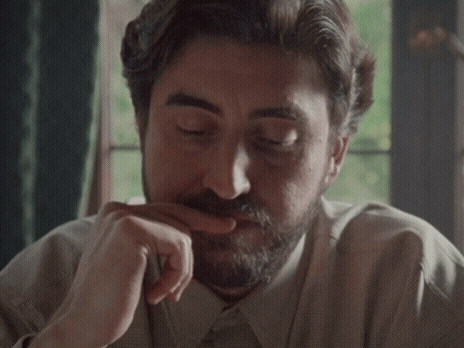
Health and Fitness
Allergies: None
Alcoholic, Smoker, Drug User: Social Drinker, Occasional Smoker
Illnesses/Disorders: None Diagnosed
Medications: None
Any Specific Diet: None
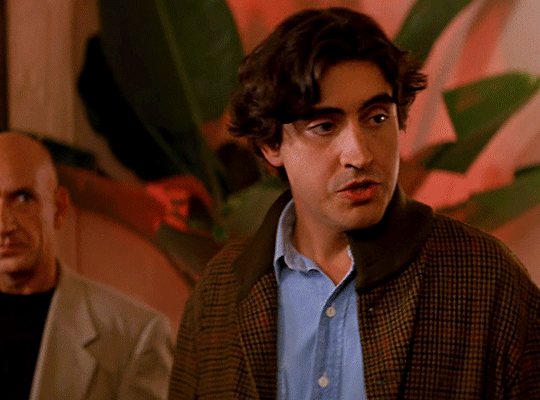
Relationships
Affiliated Groups: Alien Seekers, Granite Hills Crime-Stoppers, Historical Re-Enactment Society, Music Appreciation Society
Friends: Easton White, Douglass Bernard, Chuck Sheppard, Quentin Hollister, Holden Lynn
Shares A Dorm With: Cesar Leon, Terry Jepson
Significant Other: None
Parents: Oriol Vega (48, Father), Queralt Vega (50, Mother, Née Borja)
Siblings: None

Extras
Classes: Architecture, Criminology, Music Technology, Theatrical Studies
Occupation: Student
Employer: None
Hobbies/Interests: swimming, ice skating, rugby, dancing, calligraphy, star gazing, magic, acting, note taking & researching, music (both creating & listening to), cooking, card games
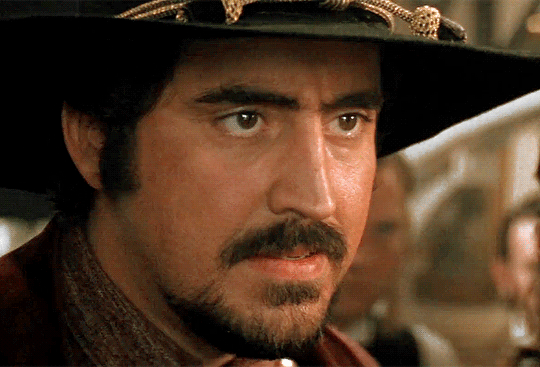
7 notes
·
View notes
Text
Lavander Languages! (Queer Languages)
Lavander Languages are ways of speaking adopted by the queer community, sex workers and people of color. Often times they were used as code in order to be safe in a world where people want to bury us.
"Lavender languages" are the (anti-)languages, cants and slang created and used by LGBT+ communities. Throughout history, people have used a myriad of secret signs and symbols to identify themselves to other members of their community while avoiding detection (and thus danger), but perhaps none are so intricate as lavender languages.
These languages all have a few things in common. First, they are used by a community that needs secrecy for safety. Second, they are influenced by a variety of languages, but especially languages spoken by other oppressed classes. And third, as they become well-known by those outside of our communities, their purpose is lost.
Polari
When homosexuality was illegal in the United Kingdom, people had to be very careful about who they could trust. One way of figuring out if a stranger was gay or bisexual was to use a Polari word in conversation; if they responded in kind, you were safe, as the film above demonstrates. Polari was also useful for conducting conversations safely in the open - if anyone overheard, they would have either heard gibberish, or, understanding Polari, would be a friend and ally.
As a cant, Polari is fascinating. You can tell so much about British culture through to 1960s - and the LGBT+ community's place in it - simply by tracing its origins and influences.
Tagalog Beki Language (Swardspeak)
Also known as Bekinese, Bekimon, and more recently gayspeak, Swardspeak is spoken in the Philippines by the gay community. According to Jon Shadel, gayspeak is a mixture ofTagalog, English, Spanish, and a little bit of Japanese, along with regional influences. Gayspeak is an amazingly camp, hilarious language.
Many terms come from the names of celebrities, brands and a cornucopia of other colorful sources. “Walang Julanis Morisette,” for instance, translates to “there’s no rain,” a play on a lyric from Alanis Morissette’s single “Ironic”—“it’s like rain on your wedding day.” It is language as pun, as inside joke, as subversion—and it is as metaphorical as it is ephemeral.
Lubunca
Lubunca has been spoken in Turkey since the early 1900s. It too is a language born of necessity; "LGBTQ sex workers, particularly transwomen" created Lubunca to be able to communicate safely with each other. Like Polari, Lubunca has been influenced by Romani (both the Romani and sex workers were segregated and pushed to the fringe of society, thus occupying the same space where language flowed freely), and there are also elements of Kurdish, Greek, and Bulgarian.
Like gayspeak of the Philippines, Lubunca has continued to adapt in response to mainstream familiarity. Dalia Mortada writes that "because certain words have become so mainstream, they are no longer used in the sex work community". One former sex worker she interviewed spoke of girls inventing new words as needed, simply saying: "it evolves".
IsiNgqumo
Thought to be influenced by Sesotho and Nguni or isiZulu (all of which fall under the Bantu language umbrella). IsiNgqumo has been described as "extensive and colourful", a cant that "incorporates many languages and styles...the sophistication and pervasiveness of isingqumo is an indication of the developed nature of black gay subculture and its rootedness in South African Black townships on the reef." Stephanie Rudwick & Mduduzi Ntuli provide an example of isiNgqumo: "Awu, dali, awukopit ucako akasalele kanje dali"; [wow, darling, can’t you see this cute guy, what a darling].
Gayle
Gayle is usually spoken by gay descendants of colonial settlers in South Africa. It is influenced by English and Afrikaans. Gayle has been traced to the 1950s, and interestingly has been influenced by Polari, using some of the same words.
Gayle uses women's names for words with the same first letter: "Carol" means cry, "Lulu" means laugh, and "Monica" means money. "Gail", funnily enough, means "chat".
Oxtchit
An Israeli Gay Lexicon, that comes from the word “oxtchot” used to describe young, effeminate gay men of
Middle Eastern or North African descent. Oxchot (and therfore oxchit) is a term original to Hebrew that is most likely derived from the Arabic for “my sister”.
It is is usually characterized in terms of exaggeratedly high speaking pitch, wide pitch ranges and high levels of pitch dynamism all laid over a distinct and unique set of lexical items.
Pajubá
A secret language spoken by black brazillian Transwomen and Travestis.
A mix of the African language Yoruba and Portuguese, Pajubá is a secret language that works sometimes as a protective shield, sometimes as a weapon. One of the many queer languages of the world, Pajubá is unique in its outrageous performance of femininity.
English, Spanish, and French worda are also borrowed in Pajubá. Likewise Portuguese words are used with double meaning.
Born in Terrarios, places of wordship for afro-brazilian religious practices, Pajubá means gossip or news, there's a great emphasis on body language with an over-the-top, camp, feminine performance.
Bahasa Binan
Bahasa Binan (or bahasa Béncong) is a distinctive Indonesian speech variety originating from the gay community. It has several regular patterns of word formation and is documented in both writing and speech.
One pattern of word formation modifies standard Indonesian roots (normally composed of two syllables) to have e as the first vowel and ong closing the second syllable—hence providing regular assonance with the standard Indonesian word bencong [ˈbɛntʃɔŋ], a male homosexual, trans woman, or male crossdresser. Another word formation pattern adds -in- infixes to other Indonesian roots. The best example is the word binan itself, formed with the word banci, "male transvestite", to which the -in- infix has been added and from which the second syllable -ci has been dropped.
Bahasa Binan also uses a range of standard Indonesian words with altered meaning.
Sources: https://www.lgbtculturalheritage.com/lavenderlanguages
https://www.out.com/out-exclusives/2016/8/17/lavender-linguistics-queer-way-speak
https://medium.com/matter/learn-the-secret-language-of-brazilian-transwomen-80d5b021f222
18 notes
·
View notes
Text
Today we will discuss an important issue, of how societies organise themselves.
And that is done by something called Socioeconomic systems.
Looking back historically at the societies of the world, from conception until now, the Socio-economic arrangement has always determined welfare and survival of all societies. These systems also brought hope and direction to people.
So, from the birth of society, as soon as the first crops of sustainable life were discovered in the lands of the Eastern Mediterranean, and a few hundred years later were planted in the rich black soils of South Eastern Europe...to begin with in the huge lower Danube valley of Dobrodja (in today's Bulgarian lands), agriculture was born on a massive social scale. Hunting and gathering was largely abondoned, as ineffective to sustain a society that wanted a better life, than living in caves, in fear of all around.
So, Civilization was born, some argue 20 to 30,000 years ago, by the birth and development of agriculture. The world never looked back. And Eastern Europe became the most powerful centre of culture and development...number of Empires were born, in that rich black soil by of Bulgaria. For example, the Goths, the Slavs, the Celts, were all born as initial communities in that lower Danube land of Bulgaria. Of course from there, they spread all over Europe, Asia and North Africa. So, that was the second stage of known world historical systems. The first stage was individual survival against nature lasting perhaps 10,000 years, the second stage was the birth of agriculture and hence communal living in cooperation..and then, came the 3rd stage of the Socio-economic systems on Earth, called Feudalism. A system of communal cooperation based on slavery, where a single family can rule over a whole mass of people, working together, organised and more efficient than ever before. But under strict rule of an overseer, who also was a slave, totally commited to the ruling family. That stage lasted over a thousand years...and then Capitalism was born, in the 17th century, in Holland. Quickly spreading to Spain, Portugal, Britain, France.. all of Europe.
In Capitalism, it's no longer a human agency that rules, but the interest of the Capital...where the money went, the ruling power went with it. Europeans realised that if they had better weapons, they can enslave all others to work for them. But things turned out more complex than that. People in Asia, Africa, and elsewhere rebelled, didn't have money worshipped as a god...and didn't work as prescribed by European overlords. So, Capitalism came back home to Europe, putting the local European populations in factories and dirty living conditions. And these were the seeds, which gave birth to the next system, a transitional system called Socialism, on the way to build the future, all progressive and freedom based Socioeconomic system called Communism...where for the first time there would be no bosses, No Class Systems, but real social equality, prosperity, justice, etc.
Of course, the ruling class of Capital has fought hard, to keep it's rule...but eventually now, we see Socialist policies all over the world, what once were hard core Capitalist societies.
Socioeconomic changes happen when the previous system becomes inefficient, ineffective to deliver a better life for all.
Usually it takes between 700 to 1,000 years for a new Socioeconomic system to evolve.
But eventually the new better systems do evolve, and improve with living experience.
In the meantime, if we don't murder everyone, we can start building the future world for our grandchildren.
Pity that Socialism was tricked in Eastern Europe and Russia. But it is good experience, from which we learnt much for the next time, a forward looking modern nation starts to build Communism. Guess China, Vietnam, Russia and many others, are already doing it.
In Communism, if my neighbour is struggling, so am I. Let Peace and Love rain tears of joy over everyone on Earth.
Presently, the Palestinian people need All the tears of the world, to feed their soul, and propel their bravery.
2 notes
·
View notes
Note
Do you have a workout routine?
No i don’t workout too much anymore I used to tho! For anybody wanting to gain muscle mass my advice is to focus on mind-muscle connection once you have that u are golden just workout whatever muscle group u want to grow until u physically cant do another rep (start out with as heavy as weight as u can handle without corrupting form) and allow one-two days of rest between workouts of that muscle group ❤️ and eat LOTS of protein!!! these days I just do yoga and stretch a lot I did gymnastics my whole childhood so I try to maintain that by staying flexible enough to do my old tricks. So fun to do cartwheels and handstands and back handsprings etc etc is the only reason I stretch! And I don’t have a car so I walk A LOT I think that helps keep my waist small or something. At a certain point of me having this tumblr I was running 2-3 miles a day and doing heavy weight lifting lol I change so rapidly! It rlly wasn’t worth the time investment for me working out multiple hours a day didn’t make me happy and I love my body no matter what! I like being skinny but it is natural for me it runs in my family I was only working out to make my ass bigger and back straighter but I realized I am already perfect naturally ! For real I got a huge ass pretty easily but I like myself better natural plus I hate how ass-obsessed our society is liek come on that is where poop comes out!!! 🙄🙄🙄 get over it!! I will never succumb 👎 but idk what it is like to be a man i don’t blame u guys!Anyways I wanna get into running again for health reasons
Anyways my old workout routine for huge ass: (for my girls who don’t believe it won’t make u happier plz feel free to find out for yourself I don’t gatekeep !)
All with 60 pound weight
Bulgarian split squats (5x15)
Single leg RDLS (5x15)
Reverse lunges (3x10)
Single leg hip thrusts (5x15)
All are per side of glute btw!
^ I would do this 3-4x a week but also do final reps of each exercise until I couldn’t do them anymore ! Oh yes and of course work your way up to 60 pounds start with body weight if u are beginner there is no other way to get the form right! Plus 2-3 miles or running daily but at first just as much as u can as often as u can!
4 notes
·
View notes
Text
Gabriela Bankova, a 32-year-old trans woman, is continuing a hunger strike in front of the Palace of Justice on Sofia after Bulgaria’s judicial аuthorities said she could not change her ID documents according to her gender identity.
“The situation illustrates how Bulgaria has essentially turned into an authoritarian state: the court decides who is fit for society on some vague moral grounds, with no regard to whether this is in breach with constitutional [rights] and the European Convention of Human Rights,” Bankova told BIRN on Wednesday, the third day of her action.
Gabriela, parent of a five-year old, started her protest on Monday, the day she received the rejection from the court.
She first protested in the halls of the Palace of Justice and then moved in front of the building. She is adamant that she will continue the hunger strike until the adoption of a legally regulated procedure under which transgender people can change their ID. As part of the protest, she has also destroyed her birth certificate.
The outcome of her case follows a Supreme Court verdict in February which ruled that transgender people were not longer eligible to change identity documents. The ruling stated: “The constitution and Bulgarian legislation are built on the understanding of the binary existence of the human species.”
Human rights activists then told BIRN that this would result in more cases being brought against Bulgaria at the European Court of Human Rights, ECHR.
Gabriela told BIRN that so far no important politician had reached to her, or taken a position. She has little expectation that anything will change, since “the courts base their opinion on society’s norms, and this is a society that hardly knows anything about transgender people or their issues”.
In an unrelated case regarding a marriage repeatedly not recognised by Bulgarian institutions, in September the ECHR ruled that Bulgaria must create a framework to acknowledge same-sex relationships and address transgender rights. This has yet to be initiated.
“We stand against the systematic violation of the right of self-determination of trans and intersex people in Bulgaria,” two local NGOs, Bilitis and GLAS, said on Tuesday, demanding a new legal framework.
“These are the results of the institutionalised discrimination that makes life hell for trans people in Bulgaria,” the Bulgarian Fund for Women and the LGBT+ organisation Deystvie said.
Gabriela’s protest is ongoing, despite her still recovering from severe preumonia, with supporters helping her with water, warm clothes and blankets amid falling temperatures and rainy weather.
5 notes
·
View notes
Text
Riddle Era Character Sheet - Lyubomir Desislavov Vulchanov
What if it were possible to reverse the cycle of life and death, as one would rewind the hands of a clock?
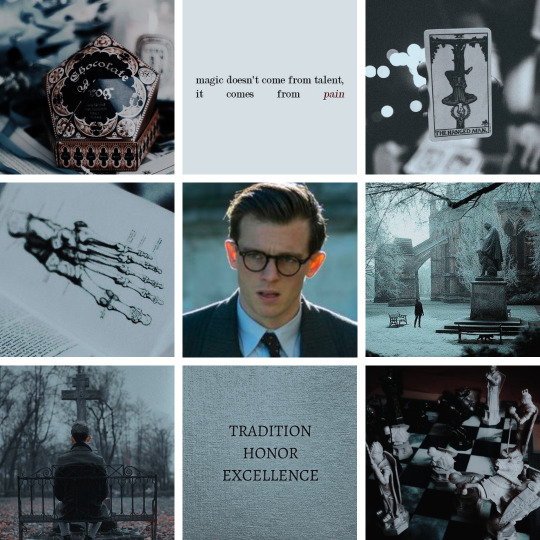
࿐ General ࿐
Name: Lyubomir Vulchanov
Name Meanings: Lyubomir: "peace and love" | Vulchanov: "Wolf-like"
Nicknames: Miro, Lev, Lyubo, etc.
Birthdate: May 20th, 1927
Zodiac Sign: Gemini
Personality Type (MBTI): INTJ (The Architect)
Blood Status: Pureblood
Nationality: Norwegian
Ethnic Background: Bulgarian, Russian
Sexuality: Bisexual (but a little private about it)
Residence: Tromsø, Norway | London, England

࿐ Physical Appearance ࿐
Hair: Light brown
Eyes: Blue
Height: 6'3"
Weight: 80kg (177lbs)
Body Type: Ectomorph
Skin Tone: Pale
Faceclaim(s): Jannis Niewöhner (older, Iain Glen? idk yet)
࿐ Background ࿐
Hometown: Tromsø, Norway
Lyubomir was born in the Vulchanov family's second home in Norway, after they fled from Bulgaria a few generations prior. It was secluded and up until his schooling at Durmstrang, he hardly left unless for special events. There was a strong feeling of being cut off from muggle society and speaking only to purebloods and the occasional half-blood. The walls of the wide corridors displayed several generations of Vulchanovs—some mad, many dead before their time, and very few who lived to accomplish anything as great as Nerida herself.
࿐ Family ࿐
Mother: Petya Vulchanova (née Kostomarova)
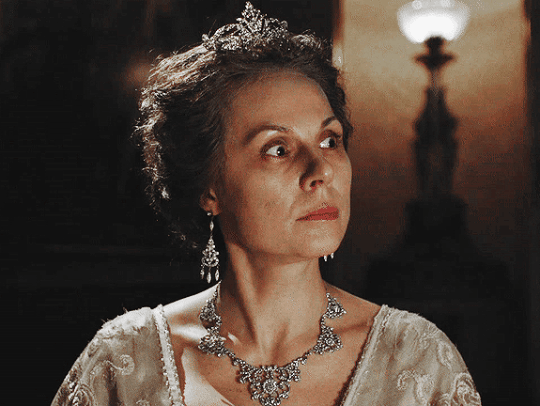
A Russian heiress who left her home after the Revolution of 1905, Petya was admittedly an older match for Desislav, but she knew well how to handle her own. Crafty, stark, and yet surprisingly maternal, she was one of the very few who could've been prepared to enter into a family as turbulent as the ancient Vulchanovs.
After Lyubomir's birth, his mother developed erythroblastosis fetalis and struggled to have any more children. Thus, she somewhat smothered him in an effort to protect him and the family line out of fear of what his father would do if something were to happen to him.
Father: Desislav Vulchanov

Lyubomir's father was a difficult man who seemed all too out of touch with the society that he appeared so concerned to keep under his hand. A blood purist to the bone with an overbearing and belligerent manner, Lyubomir didn't just have a poor relationship with his father— he was often afraid of him. Speaking out against him took a great deal of courage that Miro often had a hard time pulling together.
Desislav never truly had a formal "job" as there wasn't ever a need for one. The wealth of his line sustained them well enough and it would seem that doing any sort of work that wasn't in his best or future interests was beneath him. Yet, the narcissist in him loved when others would recognize the things that he did do, including philanthropic activities to sustain the calibre of Durmstrang's facilities and education that he deemed appropriate.
Sister: Ivayla Vulchanova

Iva was six years older than Lyubomir and often acted as his voice when it came to matters of their household and family name, conveying words on his behalf and getting through to their parents when he was unable. She had a great love of the performing arts and worked hard to eventually become a ballerina, but unfortunately her life was cut short when tuberculosis took her at 21. Since then, Lyubomir has had quite a detrimental fascination with the reversal of death.
࿐ Hogwarts/Magic ࿐
Wand:
Wood: Walnut
Core: Serpent Horn
Length: 12"
Flexibility: Whippy
Schooling: 11-13 Durmstrang, 13-17 Hogwarts
House: Ravenclaw
Best Class: History of Magic
Worst Class: Herbology
Boggart: Losing his mind (if anyone has thoughts on how that may show up feel free to let me know lol)
Riddikulus: tbd
Patronus: Brown Hare
Patronus Memory: Seeing his sister's first performance
Amortentia (what he smells like): Moss, dark chocolate, dusty books
Amortentia (what he smells): [something related to s/o]
Quidditch: No
Prefect: Yes
Clubs: No
OWL Classes (taken independently):
Transfiguration - Exceeds Expectations
Charms - Exceeds Expectations
Herbology - Poor
Potions - Exceeds Expectations
History of Magic - Outstanding
Defense Against the Dark Arts - Outstanding
Divination - Exceeds Expectations
NEWT Classes:
History of Magic - Outstanding
Transfiguration - Exceeds Expectations
Defense Against the Dark Arts - Exceeds Expectations
Charms - Acceptable
Study of Ancient Runes - Exceeds Expectations
࿐ Career ࿐
11-17: Student
17-22: British Ministry of Magic Archivist
22-39: Norwegian Ministry Archivist
17-Retirement: Necromancy Researcher
Personality & Attitude: Since birth, Lyubomir has always been a quiet and internal individual, much to the chagrin of the rest of his family who often exercised an extroverted disposition meant for entertaining. He was quick to fall to tears in his youth and somewhat naïvely just tried to go along with whatever people wanted from him in an effort to appease them. Later on, many within the Norwegian wizarding society never quite knew what to make of him, especially as the dichotomy of his outer intensity never fit with how he became upon being spoken to. He walked and stared with the severity of someone who had been on the front lines of war, but when he spoke it was often merely the voice of a soft child when contending with the ferocity of high society.
Priorities: Knowledge
Strengths: Introspective, reliable, hardworking, protective, contemplative
Weaknesses: Overcommitment, sensitivity, easily manipulated
Favorites: Snow, wizard chess, coffee, history
Colors: Dark blue, seafoam
Weather: Icy, damp
Hobbies: Wizard chess, reading, collecting chocolate frog cards, ice skating
࿐ Relationships ࿐
Very few at the moment... sad :’) Though anyone can definitely feel free to reach out to discuss something!
Friend(s):
Acquaintances:
Enemies:
Rivals:
S/O:
Elodie Dubois (@endlessly-cursed) -

Miro and Elodie met when the former transferred to Hogwarts through their mutual friend, Tom Riddle. At the time, Elodie was pursuing a relationship with him until his decided path left her with heartbreak. Miro was the one to comfort her after their falling out, and she started to frequent his company often which led to both of them catching feelings.
After Miro’s own fallout with Tom, he and Elodie became much closer, "unofficially" starting to date in her 6th and his 5th year, before they officially started after graduation, with them moving in together. Although Miro's parents weren't particularly happy about the whole ordeal, his mother managed to convince herself and his father that the relationship was only temporary. She would unfortunately be right.
Over time, Miro's career as an archivist at the ministry got the best of him and he started to sink deeper and deeper into the studies of necromancy. Elodie tried to get him interested in another things, but he always came back to it, and the two started arguing more and more. Elodie then broke it off with an ultimatum: his work or her. With him unwilling to choose, she told him to leave and never return—so that's what he did.
[more tbw]
࿐ History ࿐
The Vulchanovs were a very old and traditional pureblood family that, while not as powerful as they used to be, still held a significant impact among their peers, for better of worse. After Harfang Munter took over Durmstrang in the event of Nerida Vulchanova's death, they never officially attempted to enter back into the spotlight of running the school founded by their ancestor. It may have been because the school had transformed into a very different vision than what Nerida had intended, though many behind closed doors and through hushed whispers thought the reasoning to be the mysterious deaths that henceforth plagued the family line, in addition to the frightful madness that seemed to follow certain members like a shadow.
Some said that they were cursed (potentially by Harfang Munter himself) while others simply chalked it up to being so far removed from the muggle side of life that they were effectively delusional in their perceptions of the world. Lyubomir's great-grandfather was the first one to relocate the family line from their primary residence in Bulgaria to their second home in Norway during the rising tensions with Russia and the Ottoman Empire. He was, as well, another case of unexplainable death.
During his time at Durmstrang, Lyubomir always felt as though there were eyes on him from both students and professors, which he anticipated was brought on by the reputation surrounding his last name. The pressure to excel was overwhelming, and so when he was 13 he plucked up the courage to tell his parents that he was going to Hogwarts instead under the guise of "expanding his knowledge and understanding of the wizarding world."
࿐ Misc & Trivia ࿐
He likes to collect chocolate frog cards, especially as it was something that also helped him learn English
He has an almost obsessive fascination with death and spent most of his adult years studying necromancy and the reversal of death
He was further spurred on during his school years to pursue this line of study by Tom Riddle, who often tried to pull out of him a further fascination and understanding of the Dark Arts
He speaks Bulgarian, Russian, Norwegian, and English
Becoming a prefect helped him find a little more confidence in his own authority
He has a very sensitive nose
He was fired from his job as an archivist for the Ministry after others raised concerns of his spending a little too much time cataloging documents and books pertaining to dangerous topics
36 notes
·
View notes
Text
Do not read unless; you're a mega nerd interested in Bulgaria in the 14th century or @malka-lisitsa
Bulgaria under Ottoman rule (1396–1878)
The fall of the last tsardom; the Tsardom of Vidin marked the end of what’s historically known as the Second Bulgarian Empire. By this, the Ottomans had subjugated and occupied Bulgaria. Even though a Polish-Hungarian army commanded by Władysław III of Poland set out to free Bulgaria and the Balkans in 1444, they were defeated in the battle of Varna from the Ottomans.
The new authorities dismantled Bulgarian institutions and merged the separate Bulgarian Church into the Ecumenical Patriarchate in Constantinople (although a small, autocephalous Bulgarian archbishopric of Ohrid survived until January 1767). Turkish authorities destroyed most of the medieval Bulgarian fortresses to prevent rebellions. Large towns and the areas where Ottoman power predominated remained severely depopulated until the 19th century.
Even though conversion to Islam was not forced on the Bulgarian people, several cases of forced Islamization were recorded such as the Pomaks who got to keep their Bulgarian language, dress and some customs that were compatible with Islam.
In the thirteenth and fourteenth centuries Bulgaria became a thriving cultural centre. The flowering of the Turnovo school of art was related to the construction of palaces and churches, to literary activity in the royal court and the monasteries, and to the development of handicrafts.
In the fourteenth century many new monasteries were built under the patronage of Ivan Alexander on the northern slopes of Stara Planina, especially in a area near the capital Tarnovo which became known as "Sveta Gora" (Holy Forest)—a name also used to refer to Mount Athos. The numerous monasteries across the Empire were the very centre of the cultural, educational and spiritual life of the Bulgarian society. After the mid fourteenth centuries, many monasteries began to build fortifications under the thread of Turk invasions, such as the famous Tower of Rely in the Rila monastery.
In the 14th century, the Ottoman Turks were a rising power in the region. In 1393 they captured Turnovo. All Bulgarian resistance to the Turks ended in 1396. Bulgaria was under Turkish rule for nearly 500 years.
The Bulgarians had to pay taxes to the Turks. They also had to surrender their sons. At intervals, the Turks would take the cream of Bulgarian boys aged 7 to 14. They were taken from their families and brought up as Muslims. They were also trained to be soldiers called Janissaries.
The Bulgarian People Under the Rule of the Ottoman Empire (15th-18th C.)
The fall of the medieval Bulgarian states under the Ottoman rule interrupted the Bulgarian people’s natural development within the framework of the European civilization. To the Bulgarians that was not just a temporary loss of their state independence as it was in the case of other European peoples which had had this bitter experience at different stages of their history.
In the course of centuries the Bulgarians were forced to live under a state and political system that was substantially different from and distinctly alien to the European civilization which had evolved on the basis of Christianity and the Christian economic, social and cultural patterns.
The intrusive nature of Islamism and its intolerance to anything that was not part of it, resulted in the continued confrontation between the Ottoman empire and Christian Europe in the l5th-l8th centuries. That fact drew an iron curtain between the Bulgarian people on the one side, and Europe and the free Slav countries on the other.
In other words, Bulgaria was separated from the progressive trends of the Renaissance and the Enlightenment as well as from the nascent modern bourgeois world.
The Bulgarians were pushed into a direction of development which had nothing in common with their seven-century history until then, history deeply connected with the natural course of the European political, economic and cultural development.
The Turkish conquerors ruthlessly destroyed all Bulgarian state and religious structures. The natural political leaders of the people in the Middle Ages, i.e. the boyars and the higher clergy, vanished from sight. That deprived the Bulgarians of both the possibility for self-organization and any chance of having foreign political allies for centuries on end.
The place allotted to the Bulgarian people in the Ottoman feudal political system entitled it to no legal, religious, national, even biological rights as Bulgarian Christians. They had all been reduced to the category of the so called rayah (meaning ‘a flock’, attributed to the non-Muslim subjects of the empire).
The peasants who represented the better half of the Bulgarian population were dispossessed of their land.
According to the Ottoman feudal system which remained effective until 1834, all of it belonged to the central power in the person of the Turkish sultan.
The Bulgarians were allowed to cultivate only some plots. Groups of rural Christian families, varying in number, were put under an obligation to give part of their income to representatives of the Muslim military, administrative and religious upper crust, as well as to fulfil various state duties.
The number of the families liable to that payment was determined according to their position in the Ottoman state, military and religious hierarchy. The establishment of that kind of intercourse in agriculture – the fundamental pillar of the economy at that time, clearly led to the total loss of motivation for any real farming or and production improvements both among the peasants and the feof-holders.
The complex and incredibly burdensome tax system forced the farmers to produce as much as needed for their families’ subsistence, while the feudals preferred to earn a lot more from looting and from the incessantly successful wars waged by the Ottoman empire in all directions until the end of the 17th century.
The Ottoman Turkish state was founded on and propped up by the dogmas of the Koran. At the beginning of the 15th century when the empire prostrated from India to Gibraltar and from the mouth of the Volga to Vienna, it proclaimed itself the supreme leader of Islam – Prophet Mohammed’s standard and sword, and a leader of the Koran-prescribed perpetual jihad (holy war) against the world of Christianity.
It went without saying that under this conception the Bulgarian Christians could not hope for any. access to even the lowest levels of statecraft. The enormous imperial bureaucratic machinery recruited its staff only from among Muslims.
The Bulgarian people was subjected to national and religious discrimination unheard of in the annals of all European history. During court proceedings, for example, a single Muslim’s testimony was more than enough to confute the evidence of dozens of Christian witnesses. The Bulgarians were not entitled to building churches, setting up their offices or even to wearing bright colors.
Of the numerous taxes (about 80 in number) the so called ‘fresh blood tax’ (a levy of Christian youths) was particularly heavy and humiliating. At regular intervals, the authorities had the healthiest male- children taken away from their parents, sent to the capital, converted into Islam and then trained in combat skills.
Raised and trained in the spirit of Islamic fanaticism, the young men were conscripted in the so called janissary corps, the imperial army of utmost belligerence known to have caused so much trouble and suffering to both the Bulgarians and Christian Europe.
The Turkish authorities exerted unabating pressure on parts of the Bulgarian people to make them convert their faith and become Muslims. That policy was meant to limit the Bulgarian ethnos parameters and to increase the Turkish population numbers. For, according to the medieval standards in that part of Europe, the affiliation of a given people was determined by the religion it followed. With a view to facilitating the assimilation process, the Turkish authorities took the Christian names of those who had converted into Islam and gave them Arab names instead.
A variety of ways and means was used in the assimilation of the Bulgarian people. Some of these were the aforementioned ‘blood tax, and the regular kidnaping of children, pretty women, girls and young men to Turkish families.
Quite frequently, whole areas were encircled by troops and their inhabitants forced to adopt Islam and new Arab names, while the objectors were ‘edifyingly’ slain. In those cases, however, the ‘new Muslims’ were allowed to go on living in the compact Bulgarian environment, i.e. as a community which retained both its language and its Bulgarian national consciousness.
The present-day Bulgarian Muslims representing about five percent of modern Bulgaria’s population, are descendants of those Mohammedanized Bulgarians, whom the Bulgarian Christians used to call pomaks (from the Bulgarian root-words macha or maka, meaning harassed or caused to suffer). And yet the thousands of Bulgarians whom Bulgaria lost once and for all were those who had been subjected to individual conversion to Islam. For, it is only natural that having fallen into a community of strangers, speaking a different language and practicing different customs and faith, they had easily and quickly been assimilated.
The genocide carried out by the Ottoman Turks during hostilities in the Bulgarian lands, at the time of uprising or riot suppression, during the frequent spells of feudal anarchy, or even of Ottoman troops move-ups from garrison stations to the battle-field, had struck heavy blows on the Bulgarian nation. The Bulgarian Christian population was treated as infidel and hostile and it was outlawed even at the time of peace. Individual and mass emigration of Bulgarians to foreign lands was another cause for no lesser losses to the Bulgarian nation. There were times when whole regions became depopulated.
During the l5th-l7th centuries the Bulgarian nation had suffered a gradual but grave biological collapse which predetermined, to a large extent, its demographic, economic, political and cultural place in the European civilization. According to some Bulgarian historians’ estimations, the beginning of the Turkish oppression in the 15th century found Bulgaria with a population of about 1.3 million. Those were the then demographic parameters of any of the large European nations, for example, the population in the present-day territories of England, France or Germany.
One hundred years later, the Bulgarians were already down to 260 000 people and remained as many in the course of two more centuries. The demographic growth was suppressed through genocide, Mohammedanization and emigration. The biological collapse of the l5th-l7th centuries had repercussions which are still being keenly felt. The Bulgarian nation, nowadays, amounts to some ten million people while its European equals in number, back in the 15th century, are now sixty to eighty million-strong.
The unbearable conditions during the Ottoman yoke could not deaden the Bulgarians’ anxiety for resistance. Deprived of social and political organizations of their own, they were unable to undertake any sizeable liberation initiatives. Thus, during the first centuries of the oppression, armed resistance was only of local and sporadic nature. The so-called haidouk movement was its most frequent manifestation. The haidouks were brave Bulgarians who took refuge in the high-mountain woods, organizing there small armed detachments and bringing them down for merciless struggle against the provincial administrators.
This guerrila-type struggle continued for centuries on end (one group destroyed was instantaneously replaced by another) and succeeded in sustaining the morale of the Bulgarians by preserving, to some extent, their properties and their honor. In some places, it even had the authorities maintain more humane relationships with the Bulgarian Christians. The haidouk movement indirectly encouraged and safeguarded other forms of resistance such as maintaining the style of life, the language, the traditions and the religion, or incompliance with forced obligations and refusal to pay heavy unjustifed tax.
Liberation uprisings were the supreme form of struggle against the oppressors. The first one broke out still in 1408. Significant uprisings, proclaiming the independence of Bulgaria, took place in 1598, 1686, 1688 and 1689. They were connected with the anti- Ottoman wars waged by the West European Catholic states with which some Bulgarian representatives, mainly merchants and both Orthodox and Catholic clergymen, had established joint venture contacts.
All insurrections were quelled and accompanied with inhuman atrocities.
The Bulgarian people were living through one of the most difficult periods in its centuries long existence.
It had been deprived of its state, its church, its intelligently and its legitimate rights. Furthermore, its survival as an ethnos had also been put at stake. Linder the heel of that powerful, ruthless and uncivilized Asiatic despotism, it lasted out but remained without any substantial material and spiritual resources needed for its further development. Thus, the Bulgarians, along with all the other European peoples which had been engulfed by the Ottoman empire, were to lag some centuries behind the attainments of present-day Europe.
The Ottoman Empire was founded in the early fourteenth century by Osman I, a prince of Asia Minor who began pushing the eastern border of the Byzantine Empire westward toward Constantinople. Present-day European Turkey and the Balkans, among the first territories conquered, were used as bases for expansion far to the West during the fifteenth and sixteenth centuries.
The capture of Constantinople in 1453 completed Ottoman subjugation of major Bulgarian political and cultural institutions.
Nevertheless, certain Bulgarian groups prospered in the highly ordered Ottoman system, and Bulgarian national traditions continued in rural areas. When the decline of the Ottoman Empire began about 1600, the order of local institutions gave way to arbitrary repression, which eventually generated armed opposition. Western ideas that penetrated Bulgaria during the 1700s stimulated a renewed concept of Bulgarian nationalism that eventually combined with decay in the empire to loosen Ottoman control in the nineteenth century.
Introduction of the Ottoman System
Ottoman forces captured the commercial center of Sofia in 1385. Serbia, then the strongest Christian power in the Balkans, was decisively defeated by the Ottomans at the Battle of Kosovo Polje in 1389, leaving Bulgaria divided and exposed. Within ten years, the last independent Bulgarian outpost was captured. Bulgarian resistance continued until 1453, when the capture of Constantinople gave the Ottomans a base from which to crush local uprisings. In consolidating its Balkan territories, the new Ottoman political order eliminated the entire Bulgarian state apparatus. The Ottomans also crushed the nobility as a landholding class and potential center of resistance.
The new rulers reorganized the Bulgarian church, which had existed as a separate patriarchate since 1235, making it a diocese under complete control of the Byzantine Patriarchate at Constantinople. The sultan, in turn, totally controlled the patriarchate.
The Ottomans ruled with a centralized system much different from the scattered local power centers of the Second Bulgarian Empire. The single goal of Ottoman policy in Bulgarian territory was to make all local resources available to extend the empire westward toward Vienna and across northern Africa. Landed estates were given in fiefdom to knights bound to serve the sultan. Peasants paid multiple taxes to both their masters and the government.
Territorial control also meant cultural and religious assimilation of the populace into the empire. Ottoman authorities forcibly converted the most promising Christian youths to Islam and trained them for government service. Called pomaks, such converts often received special privileges and rose to high administrative and military positions.
The Ottoman system also recognized the value of Bulgarian artisans, who were organized and given limited autonomy as a separate class. Some prosperous Bulgarian peasants and merchants became intermediaries between local Turkish authorities and the peasants.
In this capacity, these chorbadzhi (squires) were able to moderate Ottoman policy. On the negative side, the Ottoman assimilation policy also included resettlement of Balkan Slavs in Asia Minor and immigration of Turkish peasants to farm Bulgarian land. Slavs also were the victims of mass enslavement and forcible mass conversion to Islam in certain areas.
Traditional Bulgarian culture survived only in the smaller villages during the centuries of Ottoman rule. Because the administrative apparatus of the Ottoman Empire included officials of many nationalities, commerce in the polyglot empire introduced Jews, Armenians, Dalmatians, and Greeks into the chief population centers. Bulgarians in such centers were forcibly resettled as part of a policy to scatter the potentially troublesome educated classes.
The villages, however, were often ignored by the centralized Ottoman authorities, whose control over the Turkish landholders often exerted a modifying influence that worked to the advantage of the indigenous population. Village church life also felt relatively little impact from the centralized authority of the Greek Orthodox Church. Therefore, between the fourteenth and seventeenth centuries, the villages became isolated repositories of Bulgarian folk culture, religion, social institutions, and language.
#// ooc#malkalisitsa#yeah i TRIED to trim it down but its still a lot#i did cut out a lot of repeating things but there's still some but i didn't wanna move too many sections around and lose the context#so i bolded/italics stuff if you just wanna hit the highlights#and come back another time to read the deets#the 14th century was NOT a good time to be in bulgaria
3 notes
·
View notes
Note
Happy STS, I hope you’ve had a great week! If you were given a full, uninterrupted hour to talk about anything from your WIP, what would you talk about?
Hey there! Thanks for the ask!
Oh gosh I would probably talk about the intricacies of Romanian mythology (and it would be very in depth if I wasn't so worried about revealing spoilers for MOTH)
but yeah, the mythology is incredibly cool, with influences from Ancient Rome, Orthodox Christianity, Slavic folk beliefs and pre-Roman Pagan beliefs. It's at this intersection of so many things, that it ends up feeling older and stranger than all of them. Liminal, in such an extreme sense, which is a reflection of Romania's history, being caught at the crossroads of so many political, religious and ideological forces throughout its history. It gets the hairs on my arms tingling. I want to talk about how the Arthurian archetypes collide with the Baba Yaga archetypes, I want to talk about Easter and the mirror world and the fact that the only way to get there is by following along the river a race of small, oppressed creatures called the Blajini, which are either treated as devils or as longsuffering angels, and are absolutely an allegory for the outsiders of society, I want to talk about the fact that the underworld is called the Saturday Water and how Saturday and water being associated with the afterlife also shows up in the folk catholicism of Haiti, halfway across the world. I want to talk about Paparuda, which is a rain ritual to Perun, the Slavic cognate of what eventually became Thor, but at the same time has ties to the Persephone myth, as well as the Bulgarian word for butterfly. I want to talk about the myths where being beautiful and valiant and heroic helps you get the girl, and the ones where being beautiful and valiant and heroic still won't save you from the horrors of the world.
MOTH references a lot of these myths and it makes me very happy.
6 notes
·
View notes
Text
Baba Vanga Prediction List

Baba Vanga (Oct 3 1911 - Aug 11 1996), was a Bulgarian mystic and herbalist. Blind since early childhood, Baba Vanga spent most of her life in the Rupite area of the Kozhuh mountains in Bulgaria.
In the late 1970s and 1980s, she was widely known in Eastern Europe for her alleged abilities of clairvoyance and precognition. Zheni Kostadinova claimed in 1997 that millions of people believed she possessed paranormal abilities.
ps. all of her predictions haven’t come true so don’t worry about the predictions that are mentioned.
I’m sharing the list as a fun things.
2023 – The trajectory of our planet will adjust marginally.
2025 – Europe remains sparsely inhabited.
2028 – Humans create a fresh and innovative power source (Most likely Controlled Nuclear Fusion).
World hunger is eradicated. Humans step foot on Venus for the very first time.
2033 – Sea levels rise due to climate change.
2043 – The international economy is booming.
Europe becomes Islamic.
2046 – Synthetic organs become readily available en masse.
Transplants have become commonplace.
2066 – While besieging Rome (which is at this point Islamic) the US discovers a new type of weapon classed as an "environmental destructor", it can immediately freeze anything in its path.
2076 – The social caste system collapses, resulting in marxist socialism.
2084 – Nature revives itself.
2088 – A new virus appears which makes people get old in the matter of a few seconds.
2097 – The virus is exterminated.
2100 – An artificial sun heats up the dark part of the Earth.
2111 – Humans become increasingly robotic, resulting in a scenario much like that in the movie "Terminator".
2123 – Small nations constantly wage war while the major superpowers refuse to step in.
2125 – A space agency in Hungary receives signals from deep space.
Baba Vanga comes into the public eye again.
2130 – Societies are being constructed undersea with the aid of extraterrestrial beings.
2154 – Animals evolve to be human-like.
2167 – There is a brand-new religion that becomes popular around the world.
2170 – The Earth becomes dry and desertified.
2183 – The Mars colony becomes self-sufficient and demands sovereignty and separation from Earth.
2187 – A few volcanic eruptions are successfully suppressed.
2195 – The underwater communities become fully autonomous by producing their own power and food.
2196 – There are no longer European and Asian races as they mix and form the Euro-Asian genome.
2201 – The Sun gets colder and the Earth goes through massive climatic changes.
2221 – Humans come to horrifying realizations while scouring the universe for aliens.
2256 – A returning rocket brings an intergalactic virus back to Earth.
2262 – Planetary trajectories experience fast adjustments, which puts Mars in danger of being destroyed by an asteroid.
2271 – Physical constants fundamentally change, resulting in incompatibilities with our current physical formulas.
2273 – The Euro-Asian genome mixes with the African race, creating the Afro-Eurasian race.
2279 – Scientists discover that energy can be created out of nothing by way of black holes and space bending of matter.
2288 – Time traveling is discovered.
Aliens and humans make contact.
2291 – The sun gets significantly colder and humans try to reheat it.
2296 – Solar flares become commonplace.
The gravitational pull experiences modifications, resulting in the Space Station and satellites crashing down on earth.
2299 – France leads a guerilla war against the Islamic state.
2302 – The justice system has major reforms and innovations, and a lot of universal values and laws are discovered.
2304 – Humans study the Moon thoroughly.
2341 – The Earth is in grave danger from something in outer space.
2354 – An unforeseen problem will cause major shortages of water all across Earth.
2371 – Famine becomes a major problem again.
2378 – A new race of people emerges.
2480 – The world goes into a total blackout due to the collision between two artificial suns.
3005 – There is anarchy and war on Mars.
Planets experience significant axial changes.
3010 – An asteroid will collide with the moon, creating a huge dust cloud filled with pebbles which orbits around the earth.
3797 – Every living being on earth disappears.
But humans are crafty enough to create colonies in a new solar system.
3803 – The colonies are sparsely populated and humans don't have much contact with one another.
The unique climate in the colonies causes genetic mutations in the population.
3805 – Wars are frequently fought for resources, leading to major population collapse.
3815 – The warring period ends.
3854 – Civilization stops progressing, humanity turns to tribalism for a semblance of order.
3871 – A new religion redefines morality and ritualistic norms.
3874 – The new religion becomes massively popular in all societal groups, and the prophet establishes a brand new church.
3878 – The Church teaches scientific principles which have long been forgotten.
4302 – Cities and civilized society reappear due to the Church embracing science and technological development.
4302 – Scientists discover how every illness manifests in the human body, helping in the creation of a universal cure.
4304 – The universal cure is discovered.
4308 – Significant brain development occurs leading to humanity becoming less evil and selfish.
4509 – Humans can speak to God by virtue of their newfound moral sense.
4599 – Immortality becomes the norm in society.
4674 – Human prosperity has peaked at 340 billion humans living on a multitude of planets.
Aliens and Humans mingle resulting in an humanoid-extraterrestrial race.
5076 – The edge of the known universe is discovered.
5078 – Humanity decides to attempt to leave the known universe, with about 40% of the human population refusing to do so.
5079 – The world ends.
10 notes
·
View notes